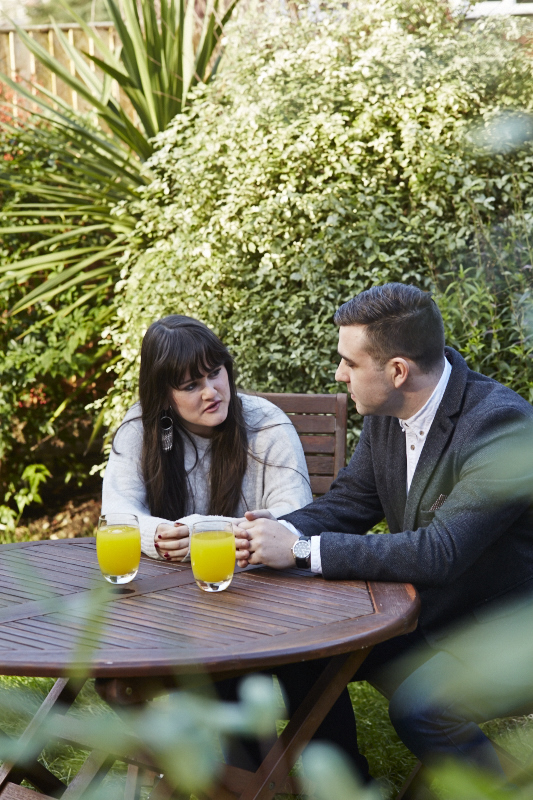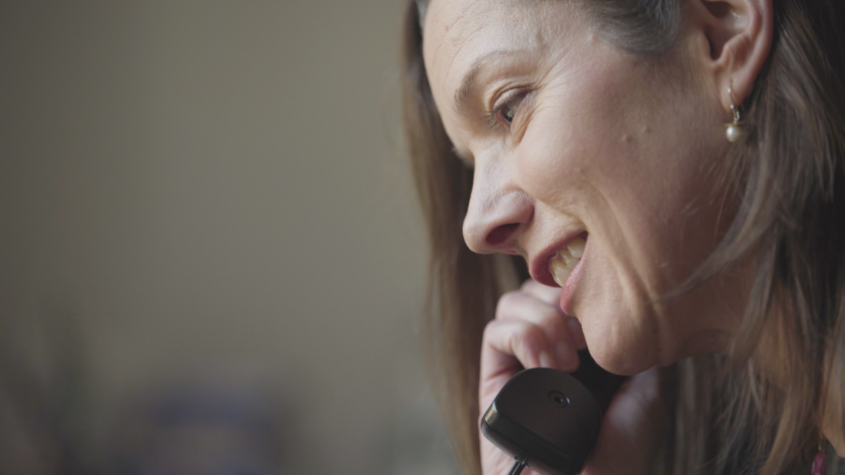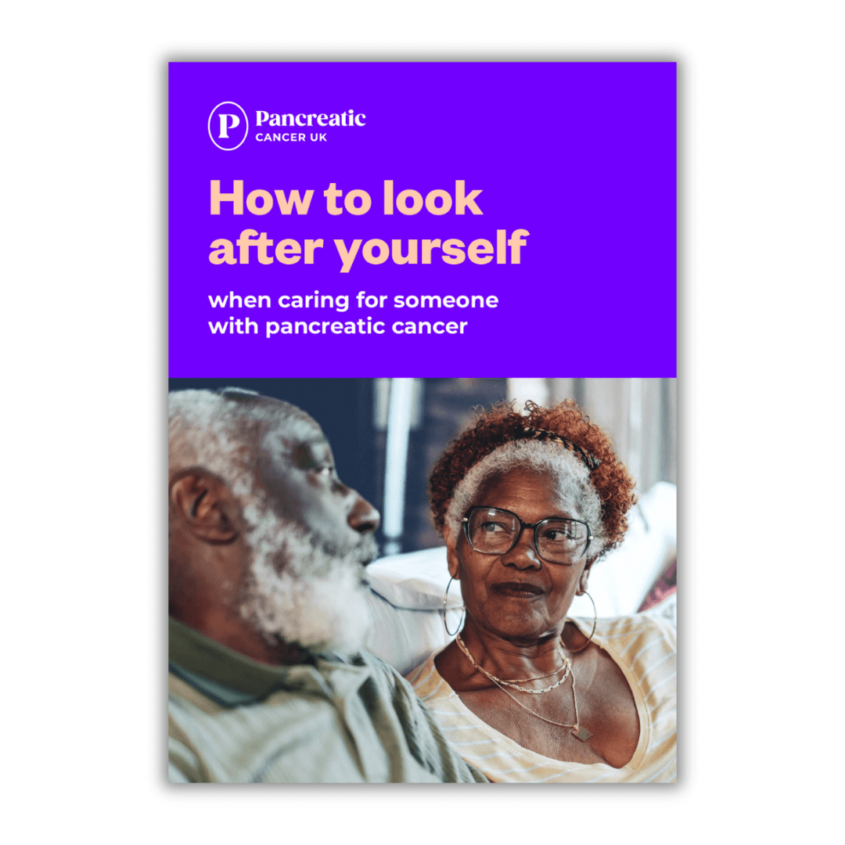We are here for you, to offer support and practical information. We support partners, family members, friends and anyone who might be affected by a diagnosis of pancreatic cancer.
You might feel like you need to put on a brave face and be positive for the person with cancer, Or you may be trying to stay positive for the sake of children or other family and friends. In reality, caring for someone can be exhausting, stressful and can feel isolating.
Everyone is different, but some common experiences include:
- feeling overwhelmed
- finding it hard to sleep
- worrying about work or money
- not eating enough
- not taking any time for yourself
- becoming exhausted, run down or burnt out
- feeling low, tearful or anxious.
It’s important that you take some time for yourself. It’s easy for your own needs to get pushed to the bottom of the list. Especially if you are dealing with other things too, like looking after children or working. But research has found that if you take time to take care of yourself, you may find it easier to care for the person with cancer. It can also help you cope.




